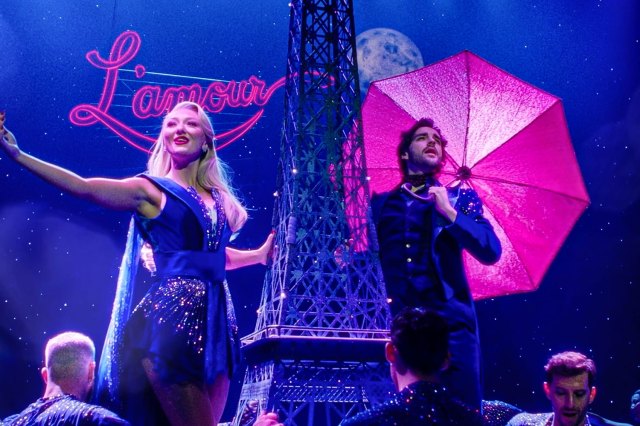Guest Blog: Why aren’t there more European plays on UK stages?
Clara Andersson is an actor, producer and
founder/director of Borealis Theatre, whose latest production, Purge
by Sofi Oksanen, opens at the Arcola Theatre on 22 February.
Here, she asks why there are so few other productions of new European dramas on UK stages.
There’s no doubt that London offers an eclectic and often dazzlingly broad cultural mix. Whilst audiences flock nightly to shows from Shakespeare to gangsta rap, all-male ballet to the plays of Oscar Wilde or even site-specific thrillers, there is one obvious colour missing from this vibrant rainbow: contemporary European theatre.
Of course the great classics are on show. Chekhov, Ibsen, Lorca, Moliere and Feydeau are amongst a familiar host of writers who get a fairly decent airing – like the venerable statues of a stately home brought out from under the dust sheets and displayed on the lawn for a day or two to ensure that the noses haven’t crumbled.
But who can honestly say that they regularly get to see the new theatre that is rousing or confounding audiences in Berlin or Barcelona? It just isn’t done. The world of classical music is essentially international and predominantly European. But perhaps music’s universal language demolishes the barriers of language and culture and makes it a special case?
Is it really true that theatre, like fine wine, doesn’t travel well? As any wine collector knows, with care, patience and attention to detail, even the most delicate gems of the continental grape can sparkle seductively in an English glass. It was this conviction that led to the founding of Borealis Theatre, with a mission to bring some of the best and most daring new writing that Europe has to offer to London.
At the end of this month, we are staging Purge by acclaimed Finnish-Estonian playwright Sofi Oksanen at the Arcola (who are of course one of the venues that do regularly programme new international work). The play was a commission for the Finnish National Theatre and Sofi’s subsequent re-working of the story as a novel has been a huge success all over Europe and in the UK, where it was a Sunday Times Book of the Year in 2010.
There are no less than 12 productions of the play taking place around Europe this year. When I was pursuing the rights for the play, I was sure they would have been snapped up by the likes of the Royal Court or the National, but was surprised to find there had only been one other enquiry that had led to nothing.
So what is the issue with staging European theatre in London? Is the theatre-going public here indifferent to continental concerns, or perhaps too sophisticated to swallow the lumpy compromise that translation can sometimes make of subtle nuance?
I’d like to suggest we look to the world of television for an example. Until recently, it was a truth universally acknowledged that European drama series just wouldn’t work on TV here. This was until the huge success of Sweden’s Wallander, then France’s Spiral and most recently The Killing from Denmark – now nobody would argue that European television drama doesn’t appeal to British audiences.
Contemporary European theatre can add colour to the grey skies over Drury Lane. And with London now unquestionably the most international City in the world, we should be even more encouraged to look beyond our own shores for theatrical adventures.
Purge runs at the Arcola from 22 February to 24 March 2012.












